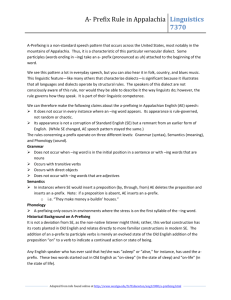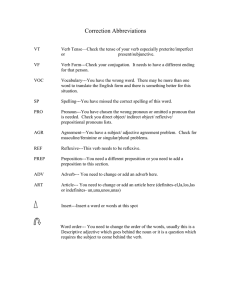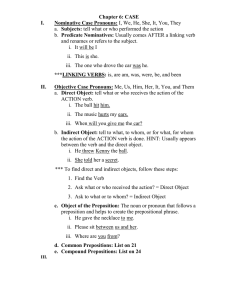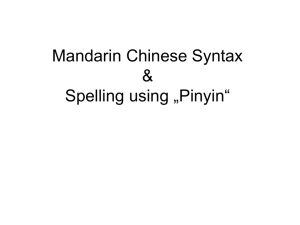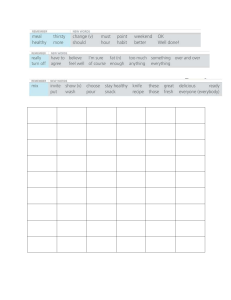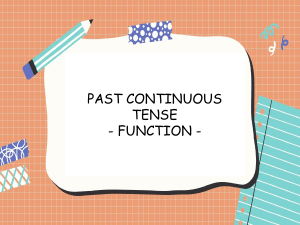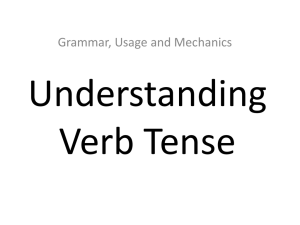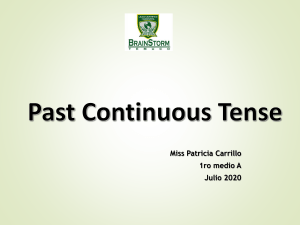Gerunds & Infinitives
advertisement
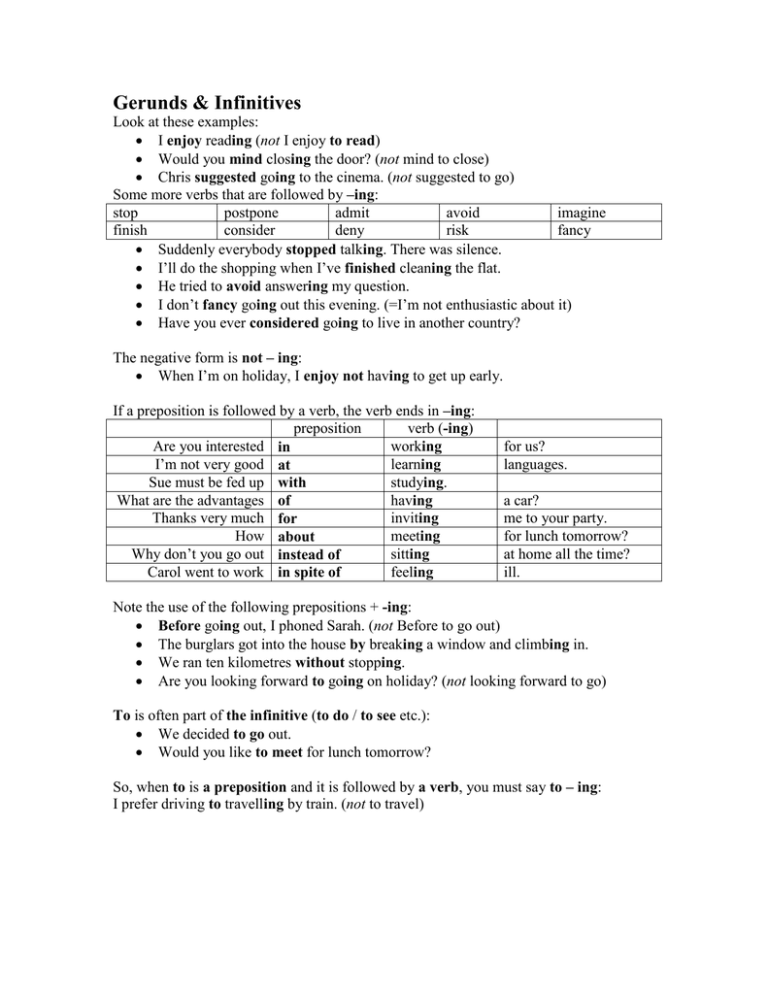
Gerunds & Infinitives Look at these examples: I enjoy reading (not I enjoy to read) Would you mind closing the door? (not mind to close) Chris suggested going to the cinema. (not suggested to go) Some more verbs that are followed by –ing: stop postpone admit avoid imagine finish consider deny risk fancy Suddenly everybody stopped talking. There was silence. I’ll do the shopping when I’ve finished cleaning the flat. He tried to avoid answering my question. I don’t fancy going out this evening. (=I’m not enthusiastic about it) Have you ever considered going to live in another country? The negative form is not – ing: When I’m on holiday, I enjoy not having to get up early. If a preposition is followed by a verb, the verb ends in –ing: preposition verb (-ing) Are you interested in working I’m not very good at learning Sue must be fed up with studying. What are the advantages of having Thanks very much for inviting How about meeting Why don’t you go out instead of sitting Carol went to work in spite of feeling for us? languages. a car? me to your party. for lunch tomorrow? at home all the time? ill. Note the use of the following prepositions + -ing: Before going out, I phoned Sarah. (not Before to go out) The burglars got into the house by breaking a window and climbing in. We ran ten kilometres without stopping. Are you looking forward to going on holiday? (not looking forward to go) To is often part of the infinitive (to do / to see etc.): We decided to go out. Would you like to meet for lunch tomorrow? So, when to is a preposition and it is followed by a verb, you must say to – ing: I prefer driving to travelling by train. (not to travel)


